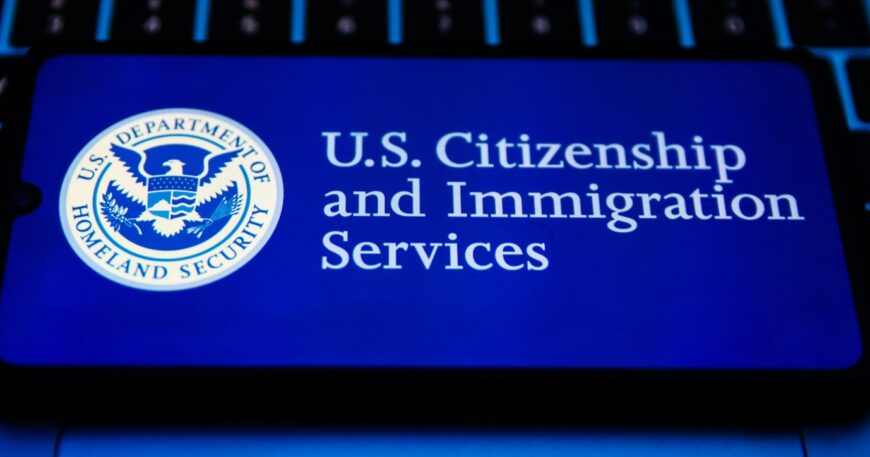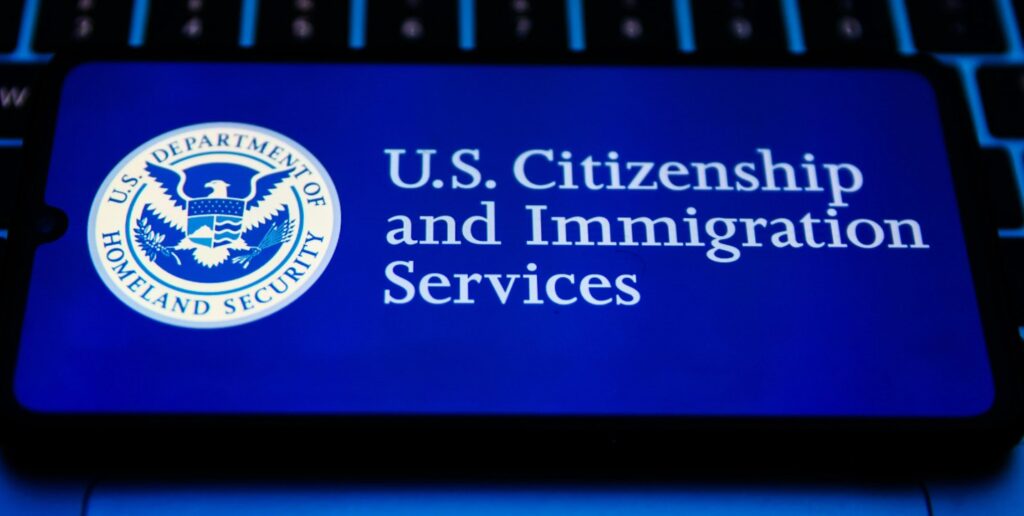Introduction
Immigration is a term that impacts millions of people globally, especially in the US. But what is immigration?
Immigration involves the movement of people from one country to another, usually to live, work, or seek better opportunities.
In this article, we’ll dive deep into the US immigration process, its definition, its relevance in US immigration, and the latest US immigration news.
By the end, you’ll have a clear understanding of what immigration truly means and why it’s such an important topic worldwide.
Understanding Immigration: What is Immigration?
Immigration is the process by which individuals move from their home country to another.
They may do this for various reasons: seeking better economic opportunities, escaping conflict, or reuniting with family.
When someone immigrates, they are typically called an immigrant.
Immigration can be legal or illegal, depending on whether the person follows the country’s laws.
Legal immigration is usually a structured process involving visas, green cards, or refugee status.
On the other hand, illegal immigration refers to entering or staying in a country without proper authorization.
Why Do People Immigrate?
- Better Economic Opportunities: Many people move to countries with stronger economies to find better jobs.
- Political Refuge: People escape countries with political instability or persecution.
- Family Reunification: Immigration policies often allow family members to reunite with loved ones in a new country.
US Immigration: A Historical Perspective and Current Trends
US immigration is a topic that has been discussed and debated for centuries.
The United States, historically known as a “melting pot,” has been home to millions of immigrants, shaping its culture and economy.
From Ellis Island to today’s border security systems, US immigration has undergone significant changes.
Recent US Immigration Trends:
- Rise in Refugees and Asylum Seekers: The US has seen a growing number of people seeking asylum due to conflicts and human rights violations in their home countries.
- Changes in Immigration Policy: New administrations often bring changes to immigration laws, affecting how immigrants enter and stay in the country.
- Diversity Visa Lottery: This program allows individuals from countries with low immigration rates to apply for permanent residency.
The current US immigration news suggests that the country is still grappling with how to balance security, human rights, and economic needs when it comes to US immigration.
While some policies are aimed at tightening border security, others are focused on making immigration more accessible for skilled workers.
Key Definitions: Immigration Explained Simply
Here are some essential immigration terms explained simply:
- Immigrant: A person who moves to another country to live there permanently.
- Refugee: A person who is forced to leave their country due to conflict or persecution.
- Visa: A document that allows a person to enter or stay in a country for a specific purpose (work, study, tourism).
- Green Card: A permanent resident card that allows immigrants to live and work in the US.
Current Immigration News: What’s Happening Right Now?
Stay up-to-date with the latest immigration news from around the world.
The news surrounding immigration can often be complex, with changing laws and new policies. Here are some highlights:
- US-Mexico Border Issues: As of 2025, the US government continues to address challenges related to illegal border crossings and immigration enforcement along the US-Mexico border.
- Family Reunification Programs: There has been a significant push for reforms to improve family reunification, especially for children separated at the border.
- Immigration Reform Proposals: Ongoing discussions in Congress aim to pass comprehensive immigration reform, addressing everything from border security to citizenship pathways.
These immigration news developments show how the US and other nations are attempting to adapt their immigration systems to new challenges.
Why Immigration Matters to the Economy
Immigration plays a crucial role in the global economy.
It impacts industries, job markets, and even international relations.
Here’s why immigration matters:
- Labor Force Growth: Immigrants often fill gaps in the labor market, contributing to sectors like healthcare, technology, and agriculture.
- Economic Contributions: Immigrants bring diverse skills, which contribute to innovation and economic growth.
- Taxes and Public Services: Immigrants contribute to government revenues through taxes and use public services like healthcare, schools, and infrastructure.
How Immigration Affects Society
Immigration is not just about economics; it’s about culture and society as well.
Immigrants bring their unique customs, languages, and traditions to their new countries, enriching society in various ways.
In the US, cultural diversity is a key component of the national identity.
However, immigration can also create challenges, such as the need for social services and the potential for cultural clashes.
Immigration and Public Opinion:
Public opinion on immigration often varies depending on the country’s economy, security concerns, and political landscape.
In many countries, there’s a growing debate on whether immigration should be restricted or expanded.
FAQs About Immigration
- What is immigration? Immigration is the movement of people from one country to another to live, work, or seek better opportunities.
- How does US immigration work? US immigration involves obtaining visas or green cards, undergoing security screenings, and sometimes applying for asylum or refugee status.
- Why do people immigrate to the US? People move to the US for better economic opportunities, political asylum, or to reunite with family members.
- What are the benefits of immigration? Immigrants contribute to the economy, provide labor in key sectors, and bring cultural diversity.
- What are the challenges of immigration? Challenges include border security, balancing economic needs with social welfare, and addressing illegal immigration.
- What is the latest immigration news in the US? Recent news focuses on border security, immigration reform proposals, and family reunification programs.
Conclusion
Immigration is a complex and ever-evolving topic that affects individuals, economies, and societies globally.
Understanding immigration and its role in the US immigration system can provide a better perspective on the current challenges and opportunities facing nations today.
By staying informed with the latest immigration news and trends, you’ll better understand how this important issue impacts not only individuals but also entire nations.
The Social Impact of Immigration
Immigration not only impacts economies but also deeply shapes societies.
The migration of people from different cultural, linguistic, and ethnic backgrounds leads to societal change in many ways.
One of the most significant effects of immigration is the enrichment of culture.
Immigrants bring their traditions, cuisines, languages, art, and music, which diversify and add vibrancy to their new communities.
In many countries, immigrant communities form their cultural hubs, where they maintain their heritage while integrating into the broader society.
This blending of cultures can lead to the creation of new social dynamics, but it can also cause tension if integration is not managed effectively.
Moreover, immigration often creates multilingual societies.
Language diversity can foster a rich cultural exchange, but it also brings challenges to education, business, and communication.
For example, countries like the US, Canada, and the UK have large immigrant populations that contribute to the linguistic and cultural landscape.
Immigrants in these countries often learn new languages and adopt local customs, yet they also preserve their languages, creating a dynamic cultural mix.
Immigration and Its Effect on the Workforce
Immigration plays a pivotal role in a country’s workforce.
Many industries depend on immigrant labor to fill roles that local workers may not be willing or able to take.
In the US, for instance, immigrants account for a substantial portion of the workforce in areas such as:
- Agriculture: Immigrants make up a significant percentage of farm workers, helping to sustain the agricultural sector.
- Healthcare: Immigrants serve as doctors, nurses, and medical technicians, often addressing labor shortages in the healthcare industry.
- Technology: Skilled immigrants contribute to sectors like software development and engineering, driving innovation in Silicon Valley and other tech hubs.
Immigration also benefits the job market by fostering competition and providing new ideas and perspectives.
In turn, this promotes innovation and helps businesses adapt to global markets.
However, the impact of immigration on wages and job availability is a topic of debate.
Critics argue that immigration can drive wages down for certain sectors, particularly in low-skilled jobs.
On the other hand, many economists argue that immigrants contribute to economic growth, job creation, and productivity improvements.
The Importance of Immigration for Global Movements
Immigration is crucial not just for individual countries but also for global progress.
Immigrants contribute to global movements, bringing their experiences and expertise to different parts of the world.
For instance, immigrants are often at the forefront of efforts to:
- Promote human rights: Many immigrants who come from countries with human rights violations advocate for global human rights awareness.
- Fight climate change: Immigrants from regions severely impacted by climate change are often strong voices in pushing for global climate policies.
- Support education: Immigrant communities in various countries often work towards improving access to education, particularly for children in underserved areas.
Through immigration, individuals carry with them ideas, solutions, and practices that may be critical in addressing global challenges.
This transnational movement of people, ideas, and skills is an essential driver for worldwide progress in diverse fields, from healthcare to the arts.
Immigration Policies: How Different Countries Approach Immigration
Different countries have varying approaches to managing immigration, shaped by their unique political, economic, and social contexts.
- US Immigration Policies:
The US has complex immigration policies, with different pathways for family reunification, skilled workers, and refugees.
However, these policies often change with political administrations, creating uncertainty and confusion for immigrants. - European Union (EU) Immigration:
The EU allows for free movement between member countries, making it easier for EU nationals to immigrate.
However, policies related to asylum seekers and refugees have been a point of contention in recent years, especially following the migrant crisis in 2015. - Australia’s Immigration System:
Australia has a points-based immigration system that prioritizes skilled workers.
It also has strict immigration controls to manage the flow of people, focusing on economic needs and cultural integration. - Canada’s Immigration Policies:
Canada is known for its inclusive immigration policies and has a robust refugee resettlement program.
Its immigration system also emphasizes family reunification and skilled labor, which has helped Canada maintain a steady population growth.
These differing approaches reflect how countries view immigration—either as an opportunity for economic growth, a humanitarian duty, or a challenge to be managed carefully.
What You Can Do as an Immigrant
If you’re considering immigrating to another country, or if you’re already in the process, there are steps you can take to ensure a smoother transition and make the most out of your new life abroad:
- Research immigration laws: Before you move, understand the immigration laws and processes of the country you’re going to.
This helps you avoid legal issues and streamline your settlement process. - Build your skills: Immigrants with specific skills are often in high demand.
Consider obtaining qualifications or certifications that will help you secure employment in your new country. - Connect with local immigrant communities:
Finding support from people who have gone through similar experiences can help ease the emotional and logistical challenges of immigration. - Learn the local language: Language is often a barrier to integration, but learning the local language can make it easier to find a job, make friends, and feel part of your new community.
- Know your rights:
Understanding your rights as an immigrant can protect you from exploitation and ensure that you are treated fairly.
Conclusion: The Vital Role of Immigration in the Modern World
Immigration is a complex but essential aspect of the global landscape.
It shapes economies, enriches cultures, and supports social progress.
Whether you’re interested in the intricacies of US immigration, the latest immigration news, or just curious about the immigration definition, it’s clear that immigration is not just a political or economic issue.
It’s about people, opportunities, and the broader impact of diverse communities coming together to build a better future for everyone.
The Future of Immigration: Emerging Trends and Challenges
The world is rapidly changing, and so are the trends in immigration.
In the coming years, the landscape of immigration is expected to evolve due to technological advances, economic shifts, and global political changes.
Here are some of the emerging trends that are likely to shape the future of immigration:
- Technological Advancements:
Technology is revolutionizing the way people move across borders.
For example, digital platforms are now enabling immigrants to apply for visas and work permits online, speeding up the process.
Additionally, artificial intelligence and big data are helping governments to process and monitor immigration applications more efficiently. - Immigration and Climate Change:
Climate change is causing environmental disasters, leading to a rise in climate refugees.
As natural disasters such as hurricanes, floods, and wildfires become more frequent, immigration policies are beginning to adapt to include climate-related migration. - Increased Migration for Education:
Educational opportunities remain one of the most significant reasons for immigration.
Countries with advanced education systems, like the US, UK, Canada, and Australia, continue to attract international students.
This education migration brings future professionals and skilled workers who will contribute to their host countries’ economies. - The Impact of Global Crises:
Global issues like the COVID-19 pandemic and political instability have a significant impact on immigration patterns.
The pandemic slowed immigration in many countries due to travel restrictions, but now governments are reassessing their immigration policies to address labor shortages and economic recovery. - Shifting Immigration Policies:
Countries are increasingly recognizing the importance of skilled labor and are adjusting their immigration policies to attract talent.
Points-based systems and other merit-based immigration models are expected to become more popular in the future.
How to Stay Informed About Immigration News
In today’s rapidly changing world, staying informed about immigration news is essential.
Here are a few tips on how to keep up-to-date with the latest developments:
- Follow Reliable News Sources:
Make sure to get your information from trustworthy news outlets that cover immigration issues accurately.
Look for well-established newspapers, websites, and organizations that specialize in immigration news. - Subscribe to Immigration Newsletters:
Many organizations and advocacy groups offer newsletters that focus on immigration issues.
These can provide you with timely updates on policy changes, legal shifts, and relevant news. - Join Online Forums and Communities:
Engage with online communities where immigrants share their experiences and discuss immigration policies.
Platforms like Reddit, Quora, and Facebook groups can be a helpful resource. - Consult with US 7Immigration Lawyers:
For the latest legal advice and to understand how changes in immigration laws might affect you, it’s often best to consult with an experienced immigration attorney. - Use Government Websites:
Most countries, including the US, have official government websites that regularly update the public on immigration policies, rules, and guidelines.
By staying informed, you can navigate the immigration process more effectively and stay on top of any major policy shifts that may affect your plans or those of others.
Immigration’s Role in Global Relationships and Diplomacy
Immigration is not just about moving people across borders—it is also about how countries interact with each other on the global stage.
Immigration policy can impact foreign relations and shape a country’s diplomatic stance on various issues.
Here’s how immigration plays a role in global relationships:
- Bilateral Agreements:
Countries often negotiate agreements to manage immigration flows, particularly regarding labor migration and asylum seekers.
For instance, the US and Mexico have long-standing agreements about the movement of labor across the border. - Immigration as Soft Power:
Countries use immigration as a form of soft power, influencing international relations through visa programs, scholarships, and trade agreements.
For example, providing opportunities for education, research, and employment can strengthen diplomatic ties between nations. - Humanitarian Diplomacy:
In times of crisis, countries that take in refugees or provide asylum are often praised for their humanitarian efforts.
These decisions can build goodwill and strengthen alliances, particularly in the case of large international movements like refugee crises. - Immigration and Geopolitical Tensions:
However, immigration can also strain relationships between countries, especially when political tensions arise.
Issues such as border security, economic inequality, and the movement of refugees can lead to diplomatic conflicts.
Countries may disagree on how to manage immigration flows or how to address the root causes of migration, such as conflict or economic instability.
Immigration: A Path to Building Stronger Communities
While immigration can bring challenges, it also provides opportunities to create stronger, more dynamic communities.
Immigrants often bring new perspectives that help foster innovation, creativity, and growth.
When communities embrace diversity, they benefit from:
- Cultural Exchange:
People from different backgrounds enrich local culture, introducing new cuisines, art, and traditions. - Increased Innovation:
A diverse workforce is often more creative and innovative, helping businesses to solve problems and find new ways to succeed. - Stronger Global Connections:
Immigrants often maintain ties to their home countries, creating valuable connections for businesses, governments, and individuals across borders.
By fostering an environment where immigration is viewed as an asset rather than a challenge, societies can thrive and build stronger, more cohesive communities.
Conclusion: Embrace the Future of US Immigration
In summary, immigration is a crucial part of the world’s social, economic, and political fabric.
From the US immigration system to global migration trends, the future of immigration holds exciting opportunities and challenges.
Whether it’s addressing labor shortages, promoting cultural diversity, or responding to global crises, immigration will continue to shape the global landscape.
Syed Professional Services can assist you in a variety of ways with US immigration.
Their expertise can guide you through the complex process, ensuring that your applications are filed correctly and efficiently. Here are some of the services they provide:
- Visa Application Assistance: Syed Professional Services helps with various visa applications, including work visas (H-1B, L-1), student visas (F-1), and family-based immigration.
- Green Card Process: They provide guidance on obtaining a U.S. Green Card, whether through family sponsorship, employment, or asylum.
- Citizenship and Naturalization: They can assist with the process of becoming a U.S. citizen, helping you understand the eligibility requirements and file the necessary documents.
- Immigration Appeals: If your application has been denied, they can help you appeal the decision or take steps to reapply.
- Deportation Defense: In cases where someone is facing deportation, they provide legal defense strategies to help avoid removal from the United States.
- Work Authorization: They assist with obtaining work permits and resolving any issues related to work eligibility.
Syed Professional Services focuses on providing tailored solutions to each individual’s immigration needs, ensuring a smoother, less stressful process.







